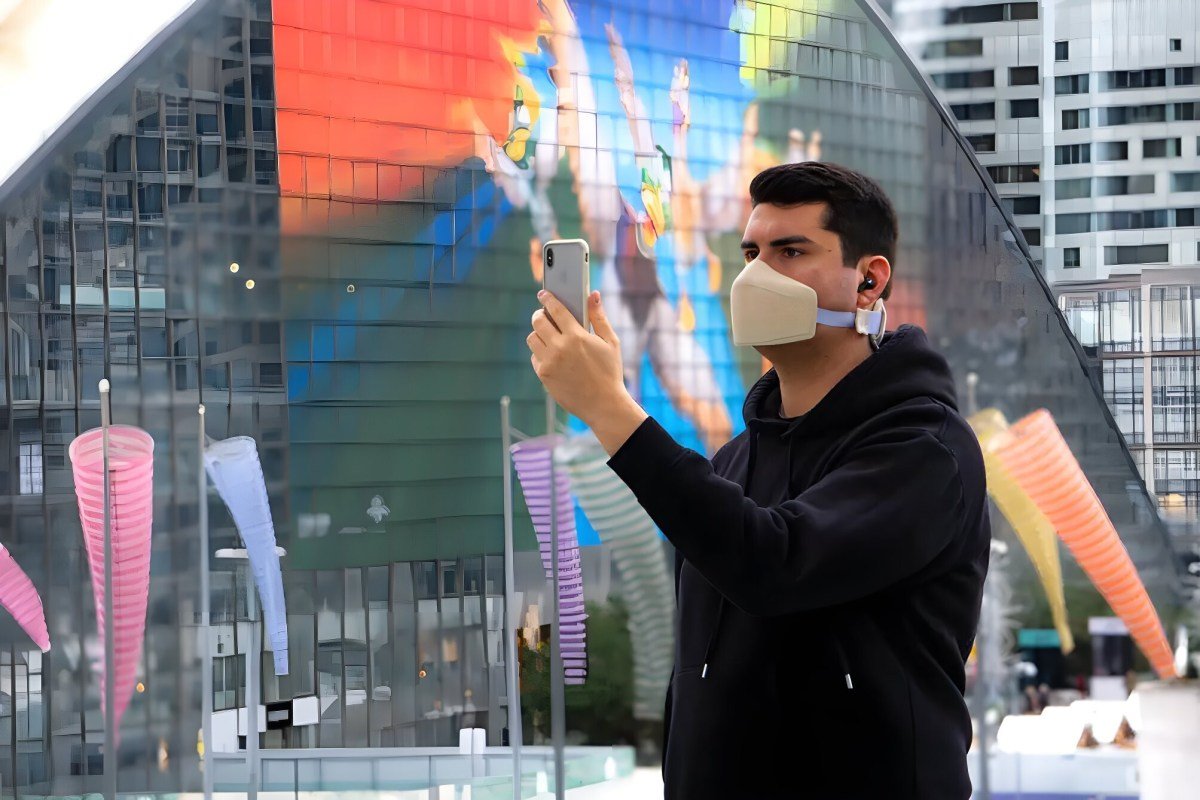The annual Consumer Electronics Show, or CES, has always been the go-to destination for the unveiling of unique and unconventional gadgets, and this year’s event is no exception.
“No matter how busy or public the location is, they can now speak in silence and with the assurance that no one nearby can hear their conversation.” – Stéphane Hersen
Toulouse, France-based startup Skyted is the brainchild of former Airbus VP, Stéphane Hersen, and acoustical engineer Frank Simon. Their latest creations, the “Mobility Privacy Mask” and “Hybrid Silent Mask,” are set to make their debut at CES 2024, and they’re causing quite a stir.
According to Hersen, these face-worn accessories are specifically designed to “absorb voice frequencies” in noisy environments such as planes, trains, and ride-shares.
“Skyted’s solution is ideal for commuters, business executives, and travelers anywhere,” Hersen claims in a press release. “With our masks, they can now speak in silence and have the confidence that no one nearby can hear their conversation.”
However, there’s no denying that these strap-secured masks are far from discreet or stylish, unless you were a fan of the Dyson Zone. And at a weight of approximately half a pound, or 220 grams, they’re not exactly lightweight either. But Hersen argues that the benefits of privacy far outweigh any tradeoffs.
The masks themselves are made from sound-dampening material, developed by Simon during his time at the French aerospace lab ONERA, originally for use in jet engines. They can be synced to a smartphone app, either wirelessly or through a wire, which offers a toggle for speech to pass through the phone’s speaker, minimizing the need to remove the mask. The app also monitors the wearer’s “voice level” and provides insights on their “perceptibility” and “intelligibility,” similar to a Fitbit for speech.
According to Skyted, their masks can muffle up to 80% of a wearer’s voice, while simultaneously enhancing the volume during voice and video calls by isolating outside noise. The company claims to have tested their masks with “leading” transportation providers, although they have not disclosed the names, and have received support from both ONERA and the European Space Agency.
However, this reporter remains skeptical. Skyted’s marketing tactics also add to the mystery surrounding their product.
On the company’s website, they showcase unusual in-app features, such as a “voice awareness” mode that allows parents to silence their noisy, mask-wearing children while they play video games. It’s not entirely clear how this feature works, perhaps through active noise cancellation technology. And interestingly, Skyted is promoting their masks as a more “immersive” gaming experience and even has a specific section on their website dedicated to the defense and military sectors. In fact, they boast about working with the French military and Defence Innovation Agency to develop a custom mask exclusively for submariners and special ops.
Additionally, Skyted seems to be testing a medical mask of some kind, which, when combined with their multiple marketing strategies, suggests a lack of focus. This scattershot approach, combined with a high starting price of $299 and competition from low-tech alternatives, does not bode well for their upcoming Kickstarter campaign.
Nevertheless, Skyted managed to secure approximately $1 million in seed funding last year, according to data from CrunchBase. This success indicates that there may be a larger market for face-mounted, sound-absorbing wearables than previously anticipated.








